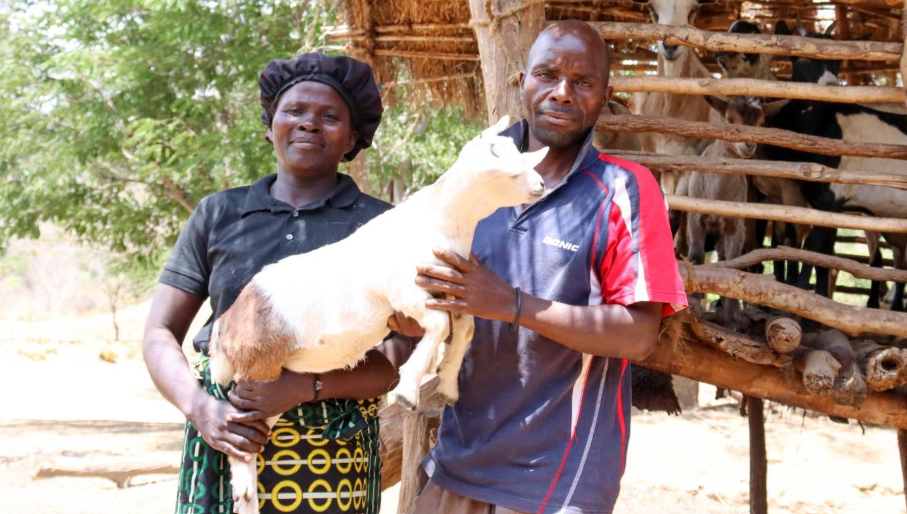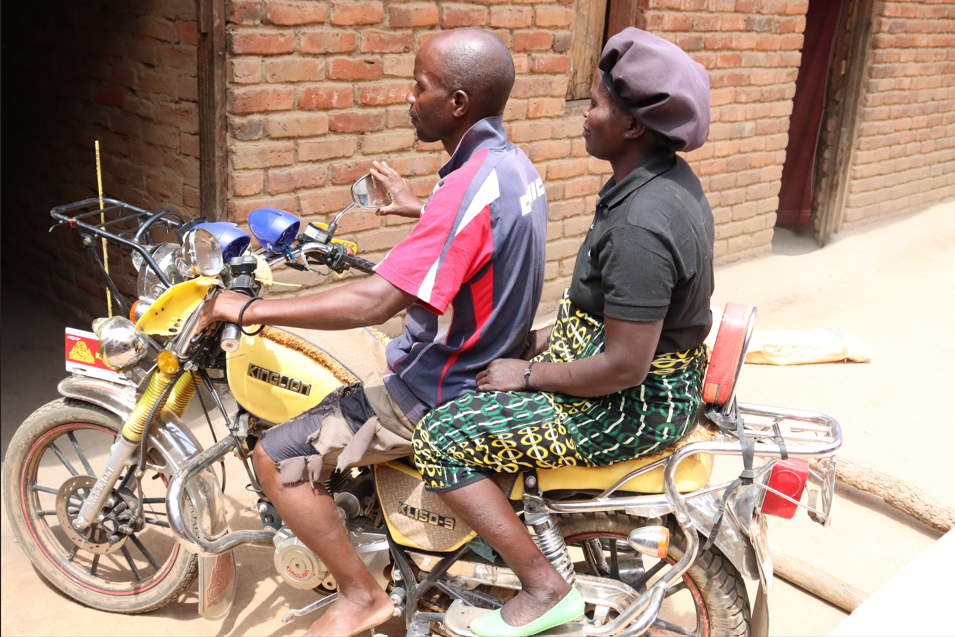For years, life was a constant struggle for Grena Banda and her husband Daniel Mwafulirwa from Rumphi District. Dependence on inconsistent farming yields and risky ventures like poaching in a nearby Vwaza Game Reserve meant uncertainty was their only guarantee. But today, thanks to a transformative project by the Small Producers Development and Transporters Association (SPRODETA) with funding from NCA/DCA, their story is one of resilience, growth, and hope.
“For us, it all started with four goats,” Banda shared with a warm smile. “Through the project, I was given four goats that have now multiplied and while I passed on the kids to another beneficiary as required, the remaining ones have been a game-changer for my family.” The goats have become more than just livestock. They represent financial stability for Banda and her husband.
“Our child is in Form 3 at Faith Secondary School in Karonga, but we were struggling to pay his school fees,” Banda shared. “My husband and I decided to sell one goat for MK90, 000. That money covered MK40, 000 in school fees, MK12, 000 for transport, MK10, 000 for shoes, MK15, 000 for a uniform, and MK10, 000 as pocket money.” The family still has three goats, two of which recently gave birth to two kids each, while the third is expectant. But the benefits do not stop with livestock.
“I have started making Mbeya fertilizer using goat dung and compost. So far, I have produced six bags and need only two more for my fields. Last year, when I first used Mbeya fertilizer, I harvested 60, 20-litre pales of maize. I sold seven to buy more Urea to continue making Mbeya. The yields are far better than when we relied on chemical fertilizers, and the crops are more resilient during dry spells,” Banda said. Banda’s husband, Mwafulirwa, nodded in agreement, rolling up his sleeves to reveal scars from handcuffs from multiple arrests as a result of poaching.
“Before, I used to go into the reserve to hunt. Look at these scars,” he said pointing to his hands. “They are from handcuffs. I was arrested multiple times. But now, I don’t need to those risks. The goats, the fertilizer, and the knowledge we have gained from this project have changed our lives.”
“Last year, we received a bag of fertilizer as explained by my wife and we had good yields. Together with what we earned from selling maize and tobacco, I even managed to buy a motorcycle, we now meet our daily needs easily,” Mwafulirwa added. The family has also embraced agro ecology wholeheartedly, planting trees, managing crop residues for manure, and growing vegetables in a small garden.

